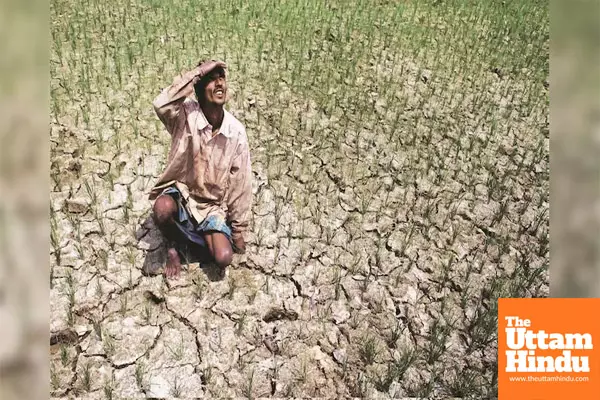
India Grapples with Stronger Heatwaves Amid Accelerating Climate Change

New Delhi (The Uttam Hindu): Climate change is intensifying, making natural cooling processes like La Nina less effective in countering rising temperatures, climate scientists warn. The India Meteorological Department (IMD) predicts an early summer this year with above-normal temperatures and prolonged heatwaves.
India recorded its warmest February since 1901, with the fifth lowest rainfall since 2001. Experts cite human-caused climate change driving a "new normal" of warmer winters and shorter springs, alongside annual weather fluctuations.
Arpita Mondal, associate professor at IIT Bombay, highlighted that the dry winter exacerbated the heat, as rainfall helps naturally cool the atmosphere. Raghu Murtugudde, an earth system scientist at IIT Bombay, pointed out that jet streams, which influence weather, have shifted, contributing to the heatwave conditions.
El Nino and La Nina, natural climate phenomena, also play a role in shaping these weather trends. Vimal Mishra from IIT Gandhinagar explained that while El Nino leads to hotter springs, La Nina typically brings cooler days. However, the World Meteorological Organization (WMO) reports that the weak La Nina, which emerged in December 2024, is likely to be short-lived, with ENSO-neutral conditions predicted for March-May 2025.
Despite La Nina's cooling effects, the growing intensity of global warming, especially from the ongoing El Nino event, is raising concerns. With projections indicating that future El Nino events could become more frequent and severe, scientists warn that La Nina's cooling influence may no longer be enough to combat the escalating heat.
In 2024, India experienced a record number of 536 heatwave days, with the northwestern region recording its hottest June since 1901. With climate change driving more extreme heat, even ENSO-neutral conditions may no longer offer relief, and future El Nino events may pose increasing challenges for the country.
- IndiaHeatwavesClimateChangeGlobalWarmingExtremeWeatherRisingTemperaturesHeatwaveImpactEnvironmentalChallengesClimateCrisisIndiaClimateActionHeatRelatedHealthIssuesWeatherPatternsIndiaEnvironmentRisingHeatClimateResiliencePublicHealthClimateChangeAdaptationEnvironmentalPolicySustainabilityIndiaClimateRisks

